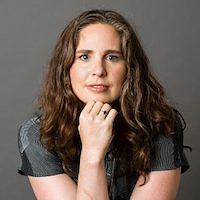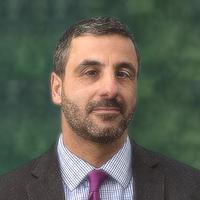- About the Course:
The Foundations & Applications of Humanities Analytics course is aimed at a broad range of humanities scholars. The course aims to empower scholars in the humanities by eliminating the “black box” of computational text analysis. Participants will gain a theoretical and practical understanding of text analysis methods, and will learn how to extract content and derive meaning from digital sources, enabling new humanities scholarship.
The online course will interweave lectures and assignments that impart a foundational and philosophical understanding of humanities analytics techniques with those that apply this foundational understanding to real-world data sets arising in literary, cultural, and political contexts. Supplementary resources will introduce the necessary steps to get started with Python programming and Jupyter notebooks, though programming skills will not be taught – or required – during the course.
The project Foundations and Applications of Humanities Analytics has been made possible in part by a major grant from the National Endowment for the Humanities: Exploring the human endeavor, under Federal Award ID Number HT-272418-20. Any views, findings, conclusions, or recommendations expressed in this course do not necessarily represent those of the National Endowment for the Humanities.
- About the Instructor(s):

LEAD INSTRUCTORS
David Kinney studies epistemology, in particular, the selective acquisition of knowledge. His research applies the principles of probability theory to understand the causal structure of systems in scientific contexts, the formation of group beliefs, and the foundations of scientific reasoning. He has taught logic, philosophy of science, and political philosophy, among other subjects. In the Foundations & Applications of Humanities Analytics course, he will leverage his expertise in probability and information theory, helping students without a mathematics background achieve conceptual mastery.
 Simon DeDeo leads the Laboratory for Social Minds at Carnegie Mellon University’s Department of Social and Decision Science, where his research group makes use of text sources—from French Revolutionary records and Enlightenment-era scientific communication to online conspiracy theorists and Harry Potter fan fiction—to define factors that influence how and when novel ideas emerge and become accepted. He has taught courses on cognitive and social science, large-scale social phenomena, and research methods in informatics and computing. He leads the major data science research practicum for students in the humanities, psychology, and economics at CMU. Within the FAHA project, he will provide expertise in the application of information-theoretic and machine learning techniques to case studies in literature and history.
Simon DeDeo leads the Laboratory for Social Minds at Carnegie Mellon University’s Department of Social and Decision Science, where his research group makes use of text sources—from French Revolutionary records and Enlightenment-era scientific communication to online conspiracy theorists and Harry Potter fan fiction—to define factors that influence how and when novel ideas emerge and become accepted. He has taught courses on cognitive and social science, large-scale social phenomena, and research methods in informatics and computing. He leads the major data science research practicum for students in the humanities, psychology, and economics at CMU. Within the FAHA project, he will provide expertise in the application of information-theoretic and machine learning techniques to case studies in literature and history.GUEST LECTURERS



Nan Z. Da
Lauren Klein
Julia Lefkowitz


Marco Buongiorno Nardelli
Richard Jean So
- Course Team:
TEACHING ASSISTANT

Zackary Dunivin studies complex systems at Indiana University, where he is a PhD student in the department of sociology. He has background in molecular biology and evolution as well as the philosophy of science. His current scholarship largely concerns culture, and includes indentifying lexical boundaries between groups with an empirical focus on White nationalists on Twitter; the development of public absorption of the discourse around Black Lives Matter, with colleagues at IU; and text and network analysis using the US Code of Federal Regulations. His dissertation focuses on bureaucracy as information processing system and includes formal modeling, empirical data analysis, and a verbal argument in a more traditional humanities vein. Zackary completed a bachelor of arts in Biology at Reed College.
- How to use Complexity Explorer:
- How to use Complexity Explorer
- Enrolled students:
-
735
- Course dates:
-
17 Jan 2022 7am UTC to
12 May 2022 5:59am UTC - Prerequisites:
-
none
- Like this course?
- Donate to help fund more like it
- Twitter link
Syllabus
- Invitation to the course
- Chapter 1: Introduction to Humanities Analytics
- Guest Lecture: Lauren Klein
- Chapter 2: Analyzing "Excellence" in the Humanities
- Chapter 3: Questions
- Guest Lecture: Richard Jean So
- Chapter 4: Patterns
- Chapter 5: Case Study: Capitalism & Democracy
- Guest Lecture: Julia Lefkowitz
- Chapter 6: Measurement & Operationalization
- Chapter 7: A Philosophical Approach to Probability
- Guest Lecture: Marco Buongiorno Nardelli
- Chapter 8: Application: Linkages in Philosophical Reasoning
- Optional Tutorial: Introduction to Scientific Programming
- Chapter 9: Application: Topic Modeling the Culture Industry
- Guest Lecture: Nan Z. Da
- Wrap-Up & What's Next
